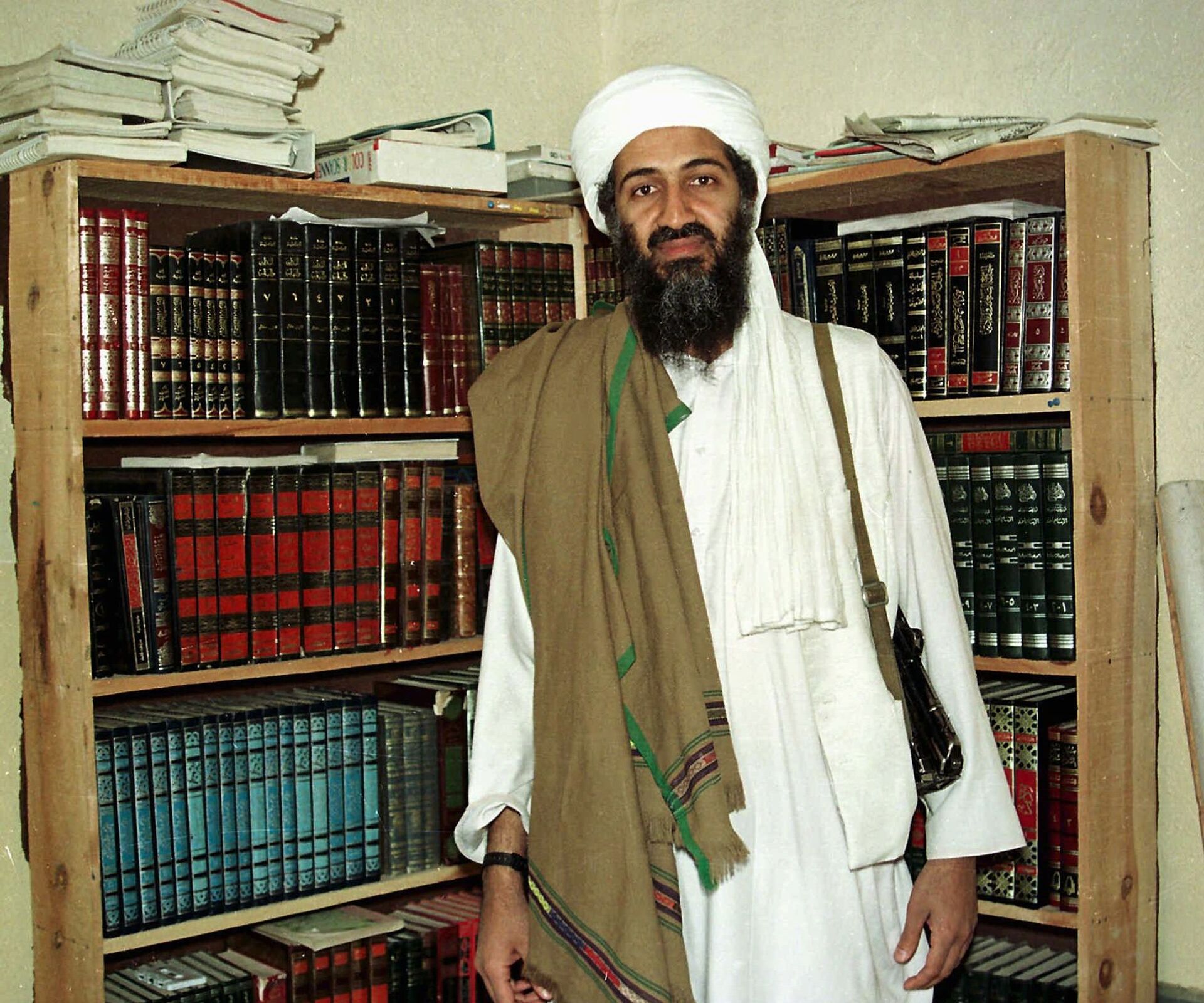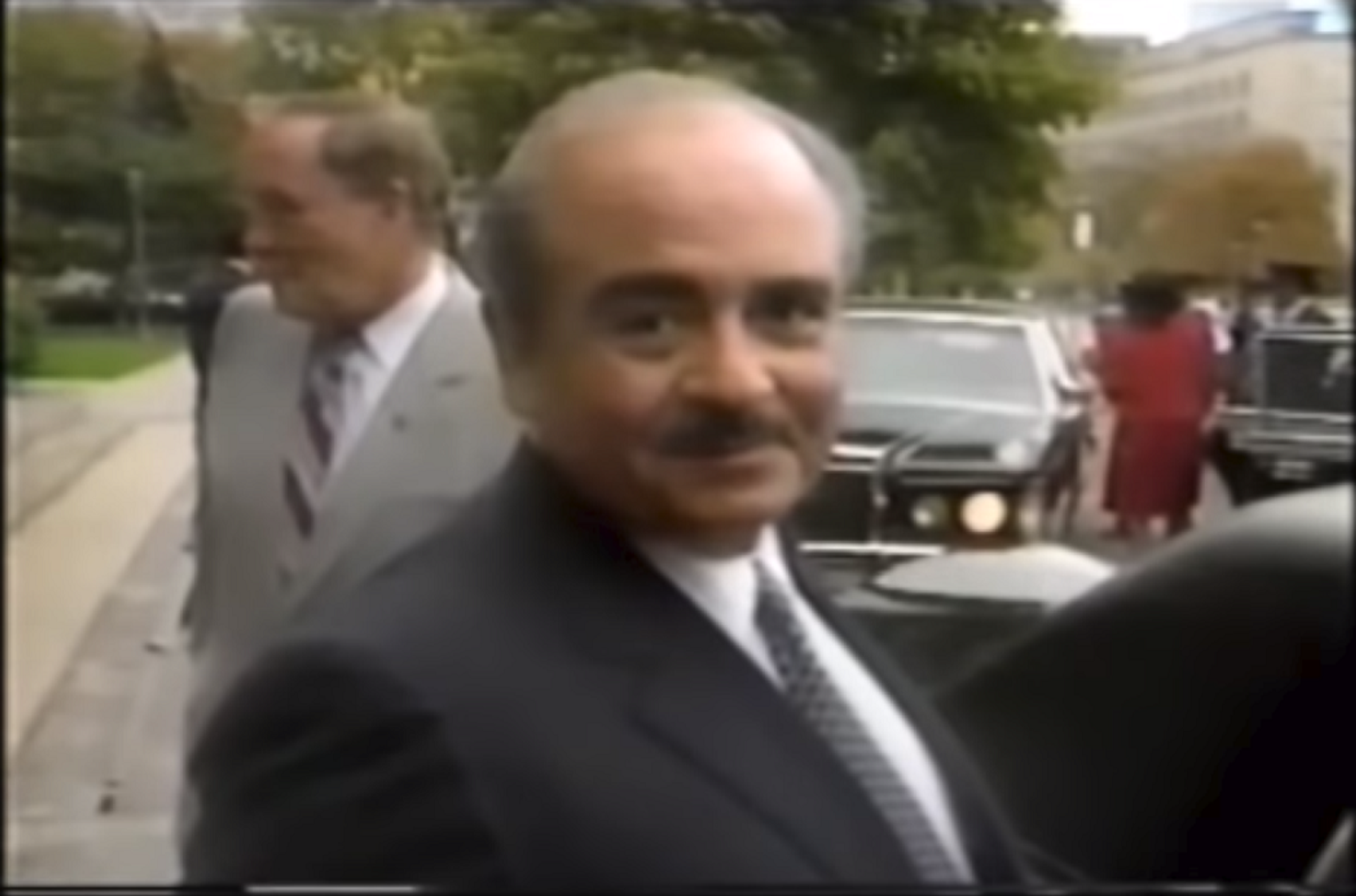A new podcast raises questions about slain Saudi dissident journalist Jamal Khashoggi and his relationship with a close family friend - al-Qaeda founder Osama bin Laden - with whom he traveled to Afghanistan in the 1980s. Was bin Laden simply a gateway to a career-launching story, or a brother-in-arms on behalf of Islamic fundamentalism?
“I collapsed a little while ago crying in sorrow for you Aba Abdullah, you were beautiful and courageous in those beautiful days in Afghanistan before you succumbed to anger and passion,” Khashoggi tweeted on May 2, 2011, using the nom de guerre of Osama bin Laden from his years as a mujahid in Afghanistan. Hours earlier, then-US President Barack Obama had announced the death of bin Laden during a raid in northern Pakistan by US Navy Seals.
انهرت قبل قليل باكيا حسرة عليك أبا عبدالله ، كنت جميلا شجاعا في تلك الايام الجميلة في افغانستان قبل ان تستسلم للغضب والهوى #OBL
— جمال خاشقجي (@JKhashoggi) May 2, 2011
بدأ الخلل عنده بتعرفه ع جماعة الجهادالمصرية بيشاور، كنا نسميهم المكفراتية كان الشيخ عبدالله عزام سدا منيعا في وجه أسامه وغيره بالنصح واللين
— جمال خاشقجي (@JKhashoggi) May 2, 2011
“His fault began with his acquaintance with the Egyptian [Islamic] Jihad group, Peshawar, and we used to call them the infidels,” Khashoggi lamented. “Sheikh Abdullah Azzam was an impenetrable dam in the face of Osama and others with advice and gentleness.”
According to the latest episode of Yahoo News’ “Conspiracyland” podcast, friends of Khashoggi have described a conflicted man who was at times unsure about condemning bin Laden’s terrorist activities in later years, as the two largely shared the same political goals: establishment of an Islamic state.
‘A Beautiful Thing to Me’
Bin Laden had traveled to the Central Asian country as early as 1980 for the US-backed insurgent war against the socialist Afghan government and its Soviet allies, called into the country in 1979 to save its collapsing authority as soldiers abandoned their posts and rallied to the cause of radical preachers in the countryside who condemned the government’s secular policies, such as the education of women. However, while bin Laden clearly came to take up the mission of a religious war against atheism, Khashoggi was, at least formally, there as a journalist to cover the war for the Saudi press, although he came in 1988 at the personal invitation of bin Laden.

“Arab youths fight shoulder to shoulder with Mujahedeen,” was the title of one story by Khashoggi written for Arab News, an English-language publication, on May 4, 1988. According to Conspiracyland, his writings tended to lionize mujaheddin like bin Laden, who he especially portrayed as playing a central role in the war.
According to journalist Lawrence Wright, who recorded several conversations with Khashoggi in 2005 for his book “The Looming Tower: Al Qaeda and the Road to 9/11” that were quoted in the podcast, Khashoggi spoke fondly of his time with bin Laden in Afghanistan, where the lines between covering the war and taking part in it became blurred.
“It was moving because we were in a cave,” Khashoggi told Wright about one of his fondest moments with bin Laden. “It was dark at night, on candlelight. He had a sentiment of Muslims, a concept of jihad, and of being close to God. Knowing that you’re doing the right thing ... fighting those bloody Soviet infidels. It was a beautiful thing to me, particularly at that age.”
Family Friends
The friendship of bin Laden and Khashoggi was no accident: decades earlier, Mohammed bin Awad bin Laden, the founder of the Saudi Binladin Group and father of Osama, had helped jumpstart the career of a young businessman who facilitated the timely purchase of $500,000 in trucks from American automaker Kenworth: Adnan Khashoggi.
As Saudi Binladin became the kingdom’s premier construction firm following Mohammed’s appointment as minister of public works, Adnan Khashoggi became more deeply intertwined with the US-Saudi military relationship, becoming a representative for defense giant Lockheed Martin, who most infamously helped coordinate the secret flow of American arms to Iran during the Iran-Contra scandal.

According to Egypt Today, Jamal Khashoggi joined the Muslim Brotherhood while in college. For decades, the Saudi monarchy and the Brotherhood enjoyed a mutually-beneficial relationship, but as differences emerged in their approaches to purging the Muslim world of its European and secular influences, they grew apart until 2012. That was when the Brotherhood was swept into power in Egypt’s first democratic elections, made possible by the overthrow of longtime US and Saudi ally Hosni Mubarak. A year later, when Egyptian President Mohammed Morsi was overthrown by US-trained army chief Abdel Fattah el-Sisi, relations between Riyadh and Cairo were quickly restored and the Brotherhood grew all the more critical of the monarchy.
The Arab Spring movement sparked a major resistance movement in Saudi Arabia’s Eastern Province, which is majority-Shiite, and the Sunni Saudi monarchy regarded criticisms against it by the Shiites and the Brotherhood to be one in the same. A series of restrictive new laws clamped down on internet organizing by activists from both camps, and by 2017, the Saudis had declared the Muslim Brotherhood a terrorist organization.
These divisions manifested in Khashoggi’s paper, Al Watan, from which he was booted as editor in 2003 after publishing an article that criticized a prominent historical figure from the Wahabbist Sunni tradition followed by the Saudi monarchy. Khashoggi went into voluntary exile in London and began to establish a reputation for himself as a democrat and a progressive.
However, his views on democracy were nothing like those of the Westerners who celebrated him, arguing in a Washington Post op-ed a little more than a month before he was assassinated that “the eradication of the Muslim Brotherhood is nothing less than an abolition of democracy.”
‘We Are No Better Than Him’
After the duo returned to Saudi Arabia from Afghanistan, their paths sharply diverged. While Khashoggi’s journalistic career took off and he became editor of Al-Watan, bin Laden followed Egyptian Islamic Jihad to Khartoum, Sudan, to plan a military campaign against the US forces that had been stationed in Saudi Arabia in conjunction with the US war and continuing confrontation with Iraq through the 1990s.

According to Wright, Khashoggi was sent to Khartoum by the bin Laden family to convince Osama to give up the terrorist’s path and return to the kingdom. He reportedly stayed with bin Laden for three nights to argue his case, but found him intransigent and unconcerned by Khashoggi’s warnings he would be ostracized.
According to Yahoo News, although Khashoggi never condoned al-Qaeda’s killing of innocent people with its terrorist acts, he also never renounced his friendship with bin Laden, either.
Nawaf Obaid, a Saudi academic and colleague of Khashoggi's, told Yahoo that after Al-Qaeda carried out the September 11, 2001, terrorist attacks, which killed more than 3,000 people in New York, Virginia, and Pennsylvania, Khashoggi faced a moment of reckoning on his former friend.
“‘If we cannot come out and condemn this, then we are no better than him,’” he continued. “And [Khashoggi] took the pictures and he went quiet. And then several hours later, I saw him again and he said, ‘Yeah, you're right.’”
However, Khashoggi's connections to bin Laden were well-known, and Jordanian journalist and former Khashoggi colleague Salameh Nematt told the Washington Post that sometime in the early 2000, he had been forced to convince Jordanian authorities not to deport Khashoggi after suspecting him of having ties to al-Qaeda.
“He was getting into trouble all the time because of his connections with al-Qaeda groups, but he was doing that as a journalist,” Nematt said. “He was very well linked, to the point where some people suspected he was financing extremist groups. I personally was convinced he was doing his job as a journalist and covering both sides.”


